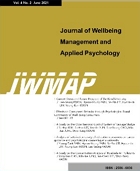- 권한신청
- E-ISSN2586-6036
- KCI
The Effects of Group Art Programs On Depression and Qulity of Life of Elderly People Using Day Care Facilities
The Effects of Group Art Programs On Depression and Qulity of Life of Elderly People Using Day Care Facilities

Abstract
Purpose: The purpose of this study is to present basic data that can be used as a program to improve emotional stability and daily life ability by reducing depression and improving the quality of life of the elderly using day care facilities. Research design, data and methodology: Changes in each stage of the study subjects were observed and interviewed, and pre- and post-tests were conducted on the depression and quality of life of the elderly in the group program. The measurement tool was designed for pre- and post-test using the tools of the Korean Elderly Depression Test (K-GDS) and the elderly's quality of life test. Results: As a result of observing and interviewing participants, and examining attitudes and reactions to each session, the pre-test showed a negative attitude, but then communicated with each other to form a positive relationship. As a result of pre- and post-test on the depression and quality of life of the elderly in the group art program, it was found that depression decreased and quality of life improved after participating in the program. Conclusions: This study was conducted by dividing the physically and psychologically deteriorated elderly into a control group and an experimental group. Sharing stories from past experiences had a positive effect on relationships with group members, and the elderly who have difficulty expressing their inner feelings through art, a non-verbal medium, had a positive effect on their satisfaction with their quality of life as they felt a sense of achievement after seeing the work.
- keywords
- Group Art Programs, Day care facilities elderly, Effects of depression, Qualtiy of life
- 다운로드 수
- 조회수
- 0KCI 피인용수
- 0WOS 피인용수















